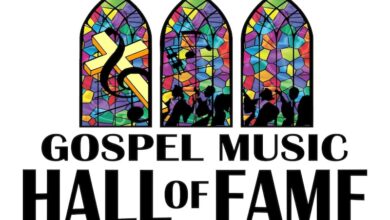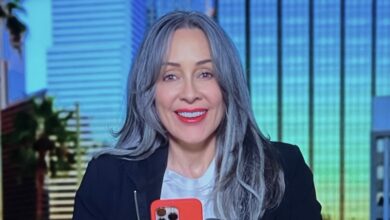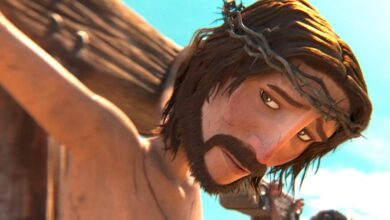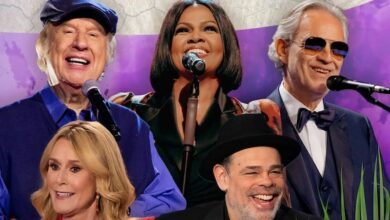Jim Brickman shares why he loves Christmas music and his roots
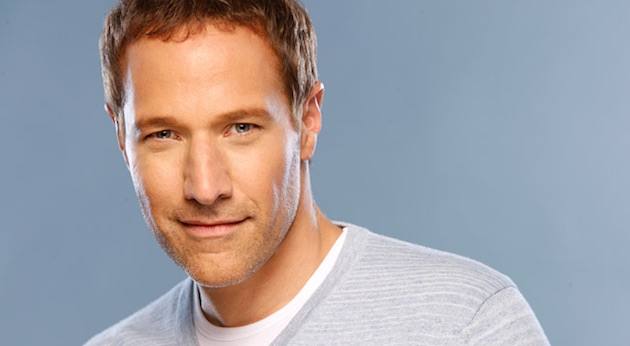
Jim Brickman is a man on a mission to remain true to himself and the music he enjoys providing others. Metro Voice caught up with the artist by

telephone and asked him about growing up, how he responds to changing audiences and what drives him.
His Christmas shows seem to be some of his most popular and there may be a reason as he connects with he music from his youth.
Brickman returns to the area, not with the Kansas City Symphony as a backdrop, but in the intimate surroundings of The Folly Theater. Jim’s “A Joyful Christmas” tour will be Monday, December 10, 7:30 p.m. at the Folly. Tickets are selling fast so get yours soon.
MV: This is a busy time of year for you with so many concerts.
JB: Yeah, it’s the calm before the storm. There’s so much is in my head. Deadlines to finish and finalizing what I think I should go in the shows. It’s different for each city.
MV: You’ve been to Kansas City several times. Do fans or music lovers look for anything different when it comes to Christmas music than other areas of the country?
JB: I used to think that I had to modify things based on taste like if I were playing in LA vs. another place. Honestly I think you have to just be who you are and hope that what you are doing connects with the audience. I do think that the shows for the most part resonate the best in places that are similar to the kinds of environment that I grew up in. Cleveland and Kansas city are very similar types of town in they both have world class culture. But there is this midwest sensibility with the weather and work ethic and I relate to that. When I come to Kansas city I feel I understand it more than Seattle or Laas Vegas. The mindset in some cities is not as realatable to me as the Midwest mindset.
MV: When you put on Christmas music, do you go back to the classics of the 50s and 60s or maybe the Christmas songs you heard your parents playing in your home?
JB: Definitely nostalgia. That’s one of the reasons that people love music during the holiday season because of the nostalgia. Do I have favorites or new standards or something. I really am kind of a traditionalist when it comes to songs that are definitive. Remix? Why bother! When you hear someone other than the original artist, it just begs comparison and you know what’s coming. New songs don’t create a mood the same way the classics do.
That’s one of the reasons I don’t tend to do the pop songs in my concerts. I do the hymns and my original songs and carols. I rarely do White Christmas. I definitely don’t do the Christmas song. They’re over-done. People sing them so earnestly they don’t know what they’re singing.
MV: Why do you think that Christmas music remains popular and relevant in a holiday that has been so commercialized and removed from its original meaning?
JB: I think because it’s hard to make music really commercial. Music is like the art of Christmas that reflects the nostalgia of things. There are certain traditions that no matter how commercial it gets the true meaning remains. You can still visit Santa at the mall and you can still have the traditional Chrismtas morning you grew up with.
Anything that evokes an emotional connection to the past stays pure.
MV: When you are a kid your piano teacher gave up on you. What is one thing that helped you continue with your pursuit of music?
JB: My teacher had told my parents I didn’t have the knack for it. But my parents said to the teacher “we don’t care if he doesn’t win any awards or is good. He just loves doing it”.
I wasn’t after achievement. I really did just loved doing it. It wasn’t so much that I cared about whether I was at a level or place it was more like I didn’t feel it was hard. My aprents never pushed me to practice. They never completely understood why I wanted to do it, either. For them it was just typical: “If he wants to do it let him do it.”
MV: How do you know, when you are on stage, that you have connected with the audience?
JB: It’s a gut feeling. Any really good entertainer will tell you that you spend a lot of time on stage assessing the feel of the entire night. Everything goes through my mind: Is it raining outside? Did it not sell well and the audience is sparse? These all contribute to a unique one night experience so one night is not like the other.
Some of it comes back to you not in applause, but rather laughter, timing and I can always feel it when I think that I may be losing people. If there’s a lull, I’ll change direction depending on how it is going. I try to have a good sense of how long I’ve been talking, or playing. It’s a gut feeling. The audience is the most important thing. How it sounds to them is more important than how it sounds to me. I’m there to entertain and let people escape and wander and laugh and have wonderful emotional moments. It’s about nostalgia and celebration and all the things that should be delivered to the audience.
This is the truth: art is not for the artist any more. Art is for the audience. If it were all about me, I shouldn’t go out and tour it.
MV: Do audiences react or enjoy concerts differently today than when you started performing before large numbers of people?
JB: When it first started with people taking video I would look out and see the red light on the video camera and it was such a distraction. I got it burned into my head. I became self-conscious of what I was saying. It’s easy to get distracted. If you get indignant about it people just get mad. It is what it is. I don’t fight it.
INTERVIEW CONTINUES BELOW VIDEO.
MV: The Folly Theater is a more intimate setting for music lovers. What’s the perfect size for an audience that allows you to feel you are in touch? How is it different than playing with the Kansas City Symphony which you have done numerous times before?
JB: Because of the presentation of my show it tends to be a more touch feely, cozy familial vibe to it. People do lose themselves in it. I’ve been careful not to try and build it up to a big show in the background with all the technical stuff. It takes it out of the intimacy. The simplicity.
MV: You’ve said you’ve always been a songwriter first. How does that inform your shows—having that ability to actually write what you perform? It is more intuitive?
JB: There’s a fine line before me telling stories about myself and me telling stories that are relatable. Most of what I’m talking about are things that bridge a gap.
MV: Do you feel pressure to change?
JB: So much of the time you’re around people telling you what to do to be hip or trendy or successful. If you don’t stay the course of “this is what I do and this is why and this and this is who I am and its’ my mission” then you might lose your core values. You can never take that away from someone who remains true. People may not subscribe to what I do. If I wanted to rock out I would. I just say, “No I don’t feel that way.”
MV: Your motto is Hope, Faith and Peace. How have you consciously made that a center piece of your music?
JB: I really believe that it is my role in my life to share positive aspects, life, hope, promise, with my audience. The music grows out of that. If I have a platform to share I want it to be a positive thing. The music reflects that and then its easy to have that point.
MV: Is there still room for faith and the wonder of creation in today’s world?
JB: I certainly hope so. There is of course. There’s been lately an empowerment message in music. Any generation feels there’s a loss of innocence in the next generation and part of it is the confidence in saying what you really believe even if other people don’t share that. It’s a hard life lesson to learn but especially in the entertainment business.



